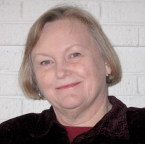Authored by Stephanie Ferrera, M.S.W.
“And now let us believe in a long year that is given to us, new, untouched, full of things that have never been, full of work that has never been done, full of tasks, claims, and demands; and let us take it without letting fall too much of what it has to bestow upon those who demand of it necessary, serious, and great things.” Rainer Maria Rilke
The new year and new decade present us, our families and our nation with “necessary, serious, and great things,” some which have not been faced before. Can we bring to it the wisdom we need to transcend our differences and build the cooperation that these times require?
My fifteen-year-old grandson is on a winning debate team at his high school. Sam can take an issue and make an iron-clad case for one side…or the other. The discipline of debating is to be prepared to argue either side, though one’s own position may be strongly on one side.
For Christmas, I gave Sam a book by Jonathan Haidt: The Righteous Mind: Why Good People are Divided by Politics and Religion. Haidt uses the analogy of the elephant and the rider that I think is similar (not identical) to Bowen’s concept of the balance between the intellectual system and emotional system. Like Bowen, he sees humans connecting largely on the elephant/emotional level. Bowen adds in the important factor of chronic anxiety. As we become more anxious, the elephant steers the rider (intellectual system) toward defending one’s views and attacking the views of the other. The rider is captive to the service of the elephant. When controversial, high-stakes issues are at play, the elephant-to-elephant conversation can easily escalate emotionally, resulting in a stalemate. Both parties walk away feeling discouraged about the relationship.
We face a discouraging divide now at the national level. Newspapers and television channels are identified with one side or the other. Maps picture the red and blue areas. Congress votes on strict party lines. As I read the news (and, yes, mainly the liberal media), I find myself thinking of Bowen’s remarkable proposal that human relationship systems operate on a dynamic of individuality and togetherness. With increasing anxiety, the balance shifts to stronger togetherness with reciprocally weaker individuality. Many people advocate for more togetherness (“stronger together”) as the solution. Bowen, in contrast, saw intensified togetherness as the road to regression.
Michael Kerr writes, “During high anxiety periods, human beings strive for oneness through efforts to think and act alike. It is ironic that this striving for sameness increases the likelihood that the group will become fragmented into subgroups. We-they factions are a product of the pressure for oneness and the intolerance of differences associated with it.” (Kerr-Bowen, 1988, page 121)
Bowen pointed to the strengthening of individuality, autonomy, and solid self, as the avenue to higher functioning in the society as it is in the family. Haidt encourages engaging with those who think differently as a way of gaining depth and clarity in one’s own thinking. Recognize one’s own biases; be open to talking about differences; listen with interest; learn how others came to hold their beliefs. Understanding others does not mean compromising one’s own values, but it does mean examining them more deeply and seeing how others could have arrived at different conclusions. Righteousness gives way to questioning and discernment. The rider begins to take charge of the elephant. Mutual respect and trust become possible.
Americans take pride in being a nation of diverse peoples and cultures. We truly are a land of opportunity for those who dare to cross the divides and get to know the human beings on the other side.
Reference
Kerr, M. E. and Murray Bowen. 1988. Family Evaluation. New York: W. W. Norton




Leave a Reply